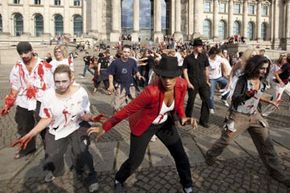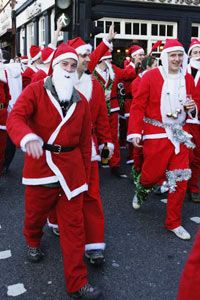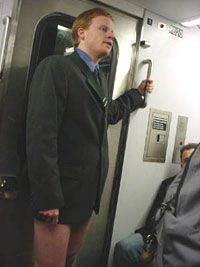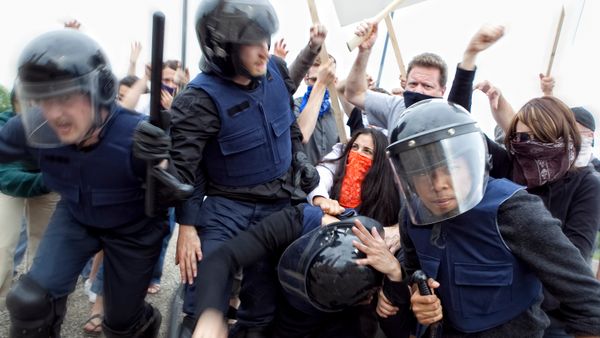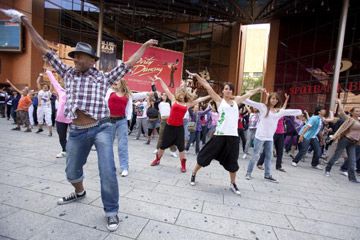Unwitting shoppers at the massive Toys "R" Us store on Times Square in New York City could have been excused for imagining that they had stumbled upon some sort of bizarre cult ritual. Back in 2003, a group of visitors to the store suddenly turned their attention away from Barbie dolls and G.I. Joe and focused en masse and intently on one of the store's big attractions: a giant, animatronics T-Rex dinosaur that moves and roars. While Toys "R" Us employees looked on, a group of shoppers -- who had all arranged to meet at the store beforehand -- first stared at the toy beast for three minutes and then began genuflecting and cowering beneath its gaze. Confused and nervous staffers at the store switched T-Rex off and called the police before the group had made it through what was supposed to be four minutes of what could best be described as toy dinosaur worship.
Far from being witnesses to a cult ceremony, employees and shoppers not in on the stunt at the toy retailer were actually watching one of the first flash mobs in history [source: Bigthink.com]. Part performance art, part social and technological experiment, part community bonding experience, flash mobs are events where strangers organized via e-mail and social networks gather in a public place in order to quickly (usually 10 minutes or less) do something meaningless and absurd together and then depart.
Advertisement
According to most reports, the idea for flash mobs originated with Bill Wasik, an editor at Harper's Magazine, who has gone on to write and speak extensively about the phenomenon and its meaning. Others credit an actor named Charlie Todd for launching flash mobs, though his version brought together a network of his friends to engage in balloon fights and fake concerts. Regardless of its origin, flash mobs have become an entrenched part of 21st century global culture, with events taking place regularly in places as far flung as Amsterdam and Vancouver and the term earning a definition in the Oxford Dictionary.
Read on to find out how flash mob has come to mean many things to many people.
Advertisement
